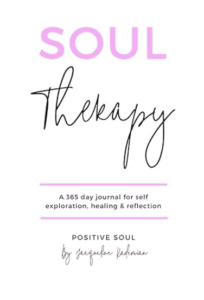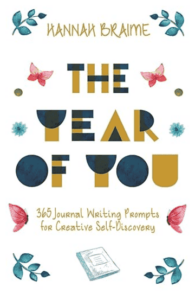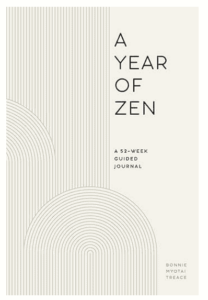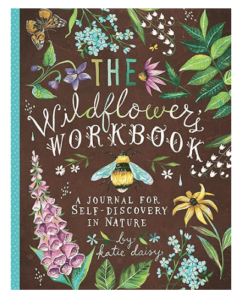One of the most effective tools for nurturing personal growth is the use of journaling prompts for self discovery. If you haven’t yet embarked on the journey of exploring the depths of your soul through writing, you’re in the perfect place to start.
Have you ever felt like there’s more to discover within yourself, new territories waiting to see the light of day?
Maybe in moments of quiet reflection, you’ve sensed the whispers of untold stories, buried emotions, or unfulfilled dreams stirring within your soul. If so, you’re not alone. In our busy lives, it’s easy to lose touch with the depths of our being, leaving us yearning for connection.
Then this is the perfect challenge for you. For the next 30 days, I encourage you to take a few moments and answer one of the journaling prompts for self discovery.
If you still aren’t convinced how journaling will help you uncover hidden gems of your being, read on because, in this blog post, we’ll cover it all. From how journaling uncovers your true self, its impact on self discovery, crafting your journaling journey, and transformative prompts for personal growth.
This blog post is all about journal prompts for self discovery.
Table of Contents
Toggle1. How Do You Discover Yourself Through Journaling?
How does the simple act of putting pen to paper unlock the hidden chambers of our being? At its core, journaling is a practice of self-reflection—a sacred space where we can freely explore our innermost thoughts, feelings, and desires without judgment or inhibition.
Through the act of writing, we externalize our internal world, giving shape and form to our hidden truths, hopes and desires. Imagine it like tracing the outline of a hidden treasure map, each word you commit to paper brings you one step closer to uncovering your inner truth.
Before we dive into the tips, tricks and journaling prompts for healing, let’s discuss why and how journaling will help you heal.
Biopsychologically speaking, journaling engages our cognitive processes, activating areas of the brain involved in self-reflection, emotional regulation, and memory recall. When we put our thoughts into words, we activate the prefrontal cortex, enhancing our ability to make sense of complex emotions and experiences.
Journaling for healing goes beyond mere catharsis; it’s about creating a narrative that integrates our thoughts and feelings, fostering emotional resilience and promoting psychological well-being.
Research shows that regular journaling can reduce stress, improve mood, and even strengthen immune function—a testament to our mind-body connection.
How Does Journaling Help With Self Discovery?
NEURAL ENGAGEMENT
Journaling engages neural circuits associated with introspection, self-awareness, and emotional processing. When we put pen to paper, we activate regions in the brain responsible for reflective thinking, memory consolidation, and emotional regulation. This neural activation creates a feedback loop, deepening our self-awareness and facilitating insights into our beliefs, values, and motivations.
COGNITIVE PROCESSING
Journaling serves as a tool for cognitive processing—a way to make sense of experiences, organize our thoughts, and gain clarity. By externalizing our thoughts and emotions, we create distance from them, allowing us to gain perspective and insight into our own inner workings.
MINDFULNESS AND PRESENCE
Journaling holds the ability to foster mindfulness and presence. In a busy world, journaling offers a quiet place where we can tune into the present moment and connect with ourselves on a deeper level. Through the practice of mindfulness, we cultivate a sense of presence and awareness, allowing us to fully experience and engage with our thoughts, emotions, and surroundings.
In essence, journaling is a journey inward, to the heart of who we are. Through the act of writing, we uncover the layers of our identity, peel back the masks we wear, and reveal the essence of our true selves.
2. How Do You Write a Self Discovery Journal?
Now let’s dive into the practical aspects of how to make the most of this transformative practice. If you’re committed to taking on this month-long challenge (which I highly recommend), it’s essential to establish a solid journaling routine that will carry you through to the end.
Steps To Successful Journal Writing
- SCHEDULE YOUR JOURNALING TIME: Take out your calendar, choose a consistent time each day that works best for you and commit to it. Whether it’s in the morning before starting your day, during your lunch break, or in the evening before bed, find a time when you can dedicate uninterrupted focus to your journaling practice.
- DESIGNATE A SACRED SPACE: Make sure, that your place of writing is a quiet, comfortable one. Bring a blanket, tea or coffee, light a candle and turn on your favourite music. Calming space will get you into a relaxed state, helping you reach your innermost thoughts and feelings.
- GATHER SUPPLIES: This might include your favourite journal, pens, markers, stickers… Gather what sparks joy in your soul.
- SET CLEAR INTENTIONS AND REALISTIC GOALS: This one is really important! Setting a realistic goal will pave your road to success. Whether is writing a page each day, or figuring out your next step in life, set a goal you can realistically achieve. That way you will stay motivated and on track throughout the challenge. You can even create a habit tracker. I religiously use them, cause they are a visual representation of my journey.
- STAY CONSISTENT: Now the hard part. Do it every single day for 30 days. Even when you don’t know what to write (write down I don’t know for a whole page). Journaling is like a muscle- it needs a consistent routine to grow and transform your being. Only consistency will bring you the results you are seeking.
- ADJUST: If you feel like the time of writing or the place is not creating a good environment, then change and adapt. Make this as comfortable for yourself as you can.
- CELEBRATE: Now that you reached the end it is essential to celebrate! Buy yourself something, take yourself on a date, and do whatever brings you joy. Well done!
3. Journaling Prompts for Self-Discovery
I recommend selecting one prompt at the end of your writing sessions. Allowing the question to linger throughout the day gives you time to reflect, ensuring you’re ready to explore it fully the next time you journal. This approach not only limits the time needed for writing but also helps avoid moments of writer’s block when nothing comes to mind.
Before we dive into the tips, tricks and journaling prompts for healing, let’s discuss why and how journaling will help you heal.
Biopsychologically speaking, journaling engages our cognitive processes, activating areas of the brain involved in self-reflection, emotional regulation, and memory recall. When we put our thoughts into words, we activate the prefrontal cortex, enhancing our ability to make sense of complex emotions and experiences.
Journaling for healing goes beyond mere catharsis; it’s about creating a narrative that integrates our thoughts and feelings, fostering emotional resilience and promoting psychological well-being.
Research shows that regular journaling can reduce stress, improve mood, and even strengthen immune function—a testament to our mind-body connection.
31 Journaling Prompts for Self-Discovery
- What childhood memory still holds emotional significance for you?
- Can you describe a recent experience that challenged your beliefs or values? What beliefs or values were challenged?
- What dream or aspiration have you been hesitant to pursue, and why? How can you create the opportunities to pursue them?
- What would you write in a letter to your future self, detailing your hopes, dreams, and aspirations?
- What are three things you’re grateful for, and why are they meaningful to you?
- Can you recall a moment when you felt completely in tune with your intuition? Describe it.
- Reflect on a recent mistake you’ve made. What lessons did you learn from it?
- What fear or insecurity is holding you back from reaching your full potential? How can you work through it?
- Who is a role model or mentor who has profoundly impacted your life, and why?
- Can you recall a moment when you felt truly alive and in alignment with your purpose? Describe it.
- Reflect on a relationship that taught you valuable lessons about love, forgiveness, or resilience.
- Describe a place that holds special significance for you. What memories are associated with it? Can you visit it?
- What hobby or passion brings you joy and fulfilment, and why? Is it present in your day-to-day life?
- What decision do you regret, and what would you do differently if given the chance?
- Describe a moment of profound clarity or insight that changed your perspective on life.
- Can you identify a recurring thought or worry that has been weighing on your mind lately? How can you lessen its burden?
- Write a love letter to yourself, celebrating your strengths, resilience, and uniqueness.
- Recall a moment when you felt completely at peace with yourself and the world around you. Describe it in detail.
- What goal or aspiration have you been procrastinating on, and why is it important to you?
- Explore a limiting belief you hold about yourself. Challenge it with evidence to the contrary.
- Describe a person or experience that has shaped your identity in a significant way.
- Reflect on a moment when you felt deeply connected to nature and the world around you.
- Recall a situation where you had to step out of your comfort zone. How did it impact you?
- What lesson have you learned today?
- What passion project or creative endeavour have you been longing to pursue? How can you make it happen?
- Reflect on a time when you felt out of alignment with your values and how you realigned.
- Describe a random act of kindness that had a profound impact on you.
- Write about a time when you felt completely understood and accepted by someone else. Where can you cultivate more acceptance towards yourself?
- What habit or behaviour would you like to change, and why is it important to you?
- Recall a decision you made that went against your intuition. What did you learn from it?
- Write a letter to yourself from five years into the future. What would you say to your current self?
Happy journaling!
4. The Best Guided Journals for Self-Discovery
If you’re seeking a deeper dive into your self-discovery journey, I recommend exploring guided self-discovery journals. Before fully committing to this exploration, I suggest completing the month’s challenge to better understand if this approach resonates with you.
Here, I’ve curated a guide to the best guided journals for self-discovery available on Amazon.
Soul Therapy: A 365 day journal for self exploration, healing and reflection
Explore self-discovery and growth with this 365-day journal. Featuring daily prompts, inspiring quotes, and open-ended questions, it offers space for reflection and healing. Designed to empower your journey, it can transform your life with consistent use.
The Year of You: 365 Journal Writing Prompts for Creative Self-Discovery
This journal fosters a stress-reducing habit of daily gratitude. With 365 prompts across 52 weekly mindfulness themes, it offers flexibility and variety to keep journaling engaging. Each prompt has its own page, providing ample space for reflection, and you can explore the themes in any order that suits you.
A Year of Zen: A 52-Week Guided Journal
This guided journal provides 52 weeks of prompts for mindfulness, reflection, and growth, covering meditation, liturgy, work, body, study, art, and the world. Perfect for all experience levels, it fosters a meaningful ritual that nurtures your physical, creative, and intellectual journey.
The 365 Self-Discovery Journal: One Year Of Reflection, Development & Happiness
Featuring daily self-exploration questions, it blends practical insights with deep reflection, making it your perfect companion for personal growth.












